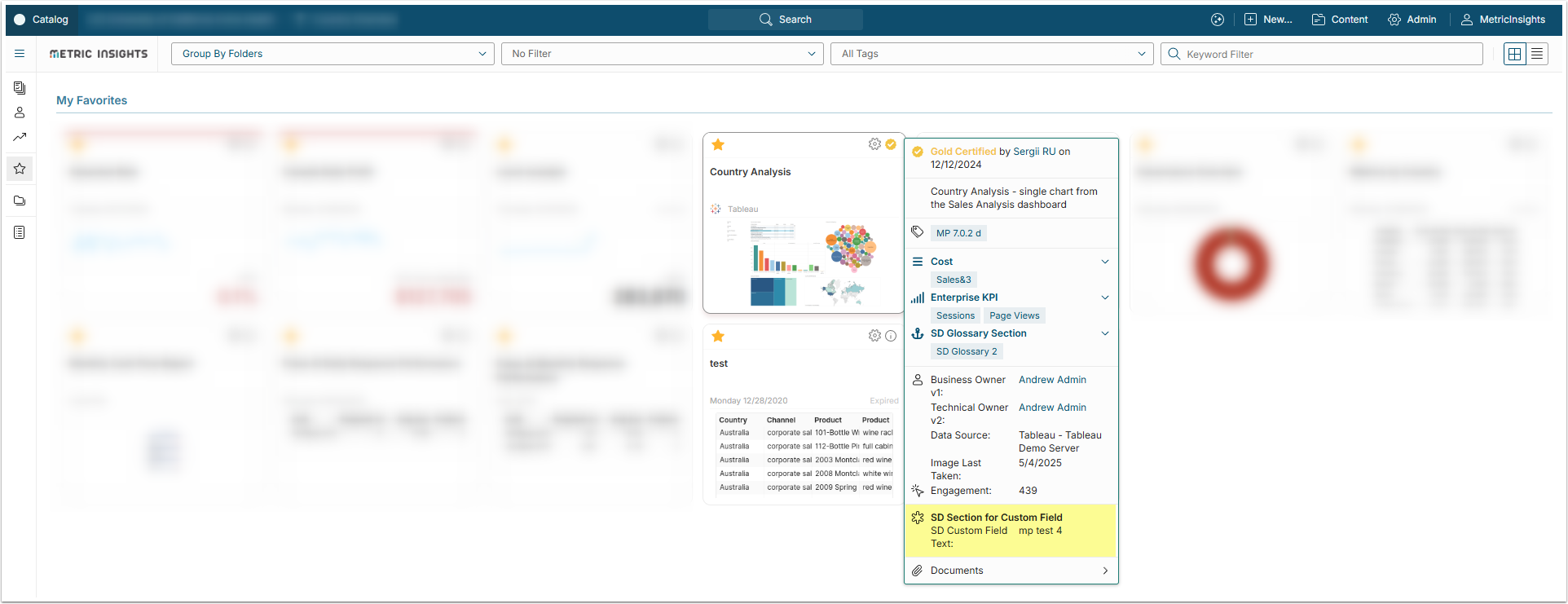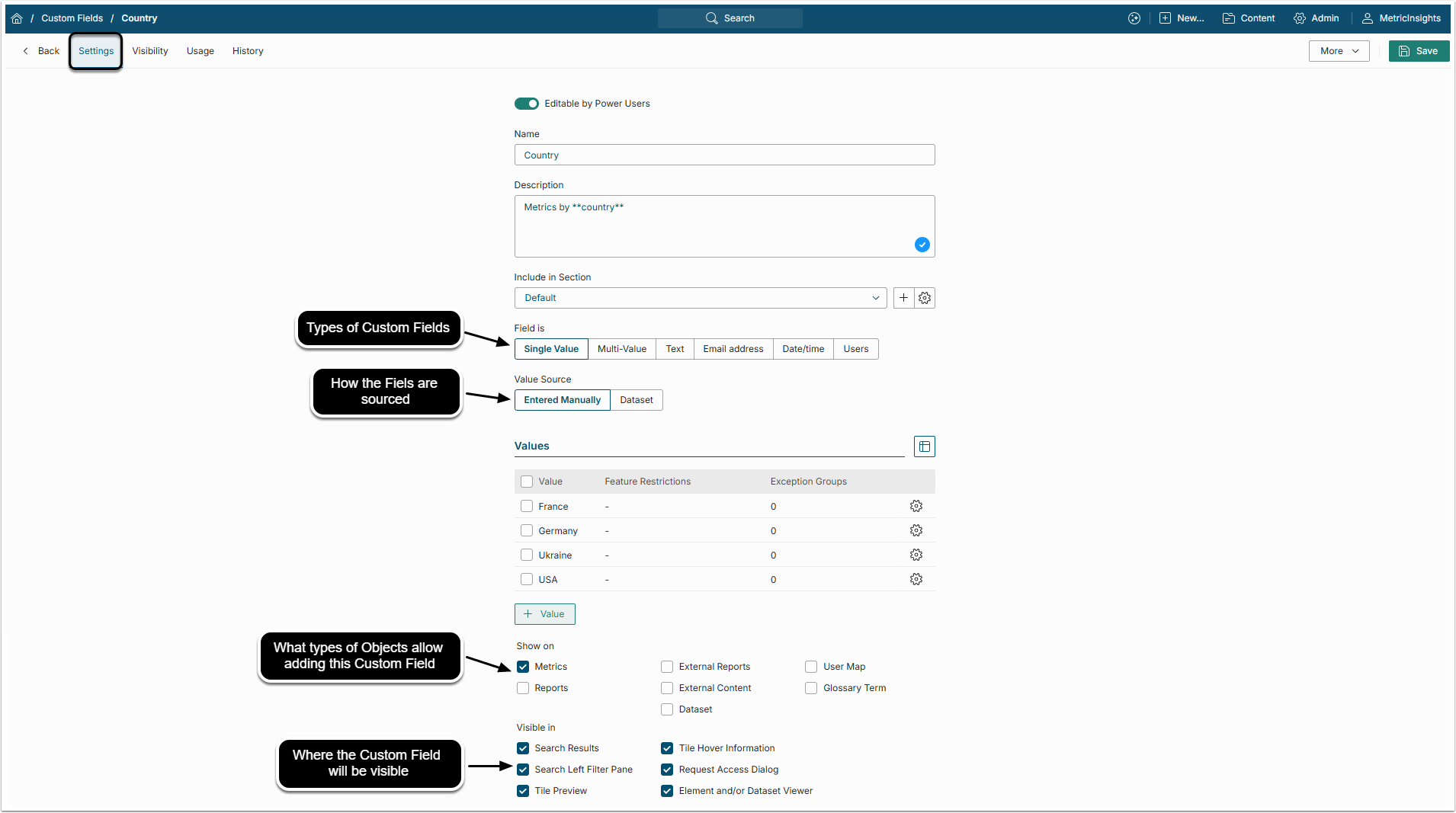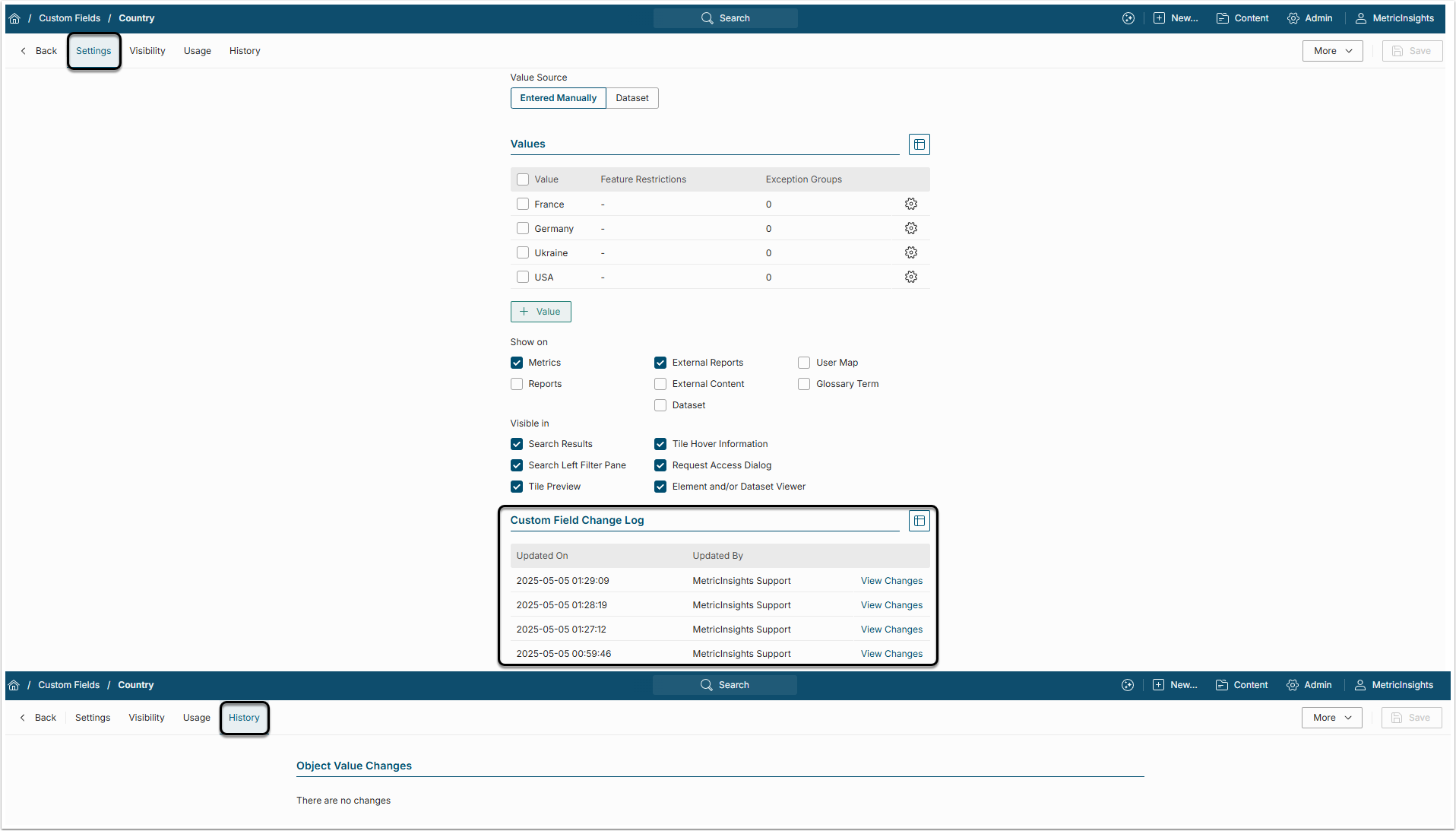Custom Fields allow Users to attach additional metadata to an Element and provide more information about it. A Custom Field must belong to a Custom Field Section and you can have as many Sections and Custom Fields as needed. Custom Fields can contain any information that is essential for facilitating a better understanding about an object. This article describes the usage of Custom Fields.
Editor
The Editor is restricted to Admins. Power Users who can edit objects that contain Custom Fileds can change Values on the Info tab of object Editors.
To open Custom Field Editor access Content > Custom Fields and click the necessary Field's Active Name link.
Settings
Based on a Value, Custom Fields can be:
- Single Value: Only one Value can be selected from a drop-down.
- Multi-Value: Multiple Values can be selected from a drop-down.
- Text: Allows for an entry of a free-form text.
-
Email address: A
mailtolink can be used. - Date/time: Any date can be selected from a calendar.
- Users: Any system user can be selected from a list.
Values can be either manually entered or sourced from a Dataset.
Users can specify types of Objects that will support adding Custom Fields for them and where these Custom Fields will be visible once added.
Access
The Groups tab appears only if a Custom Field was configured to be visible only to specific Groups in the Visibility tab.
Custom Field Autosync
Custom Fields can be autosynced with a Dataset. This functionality allows the updating of Custom Field values based on Dataset information, whenever the Dataset is updated. For more information on Custom Field Autosync, refer to this article.
The Advanced section appears only if Custom Field Data Synchronization is enabled for at least one SharePoint Data Source in the system. This functionality allows for mapping a Custom Field to a field in another system. Currently, this mapping to restricted to fields in SharePoint. See Configure Custom Field Data Synchronization for Microsoft SharePoint.
Conditional Display
The User can configure the Custom Field to be displayed only when specific conditions are met. The display Rules can be added in the Visibility tab.
For more details about how to add a Rule, check the Add Custom Fields article.
Usage
The Usage Tab reflects information on how a Custom Field is used in the system. It shows:
- Any Element that includes the Custom Field and which Values are assigned to it;
- Any Dataset/User Map that includes the Custom Field and which Values are assigned to it;
- At which stage of a Publishing Workflow the Custom Field is involved.






